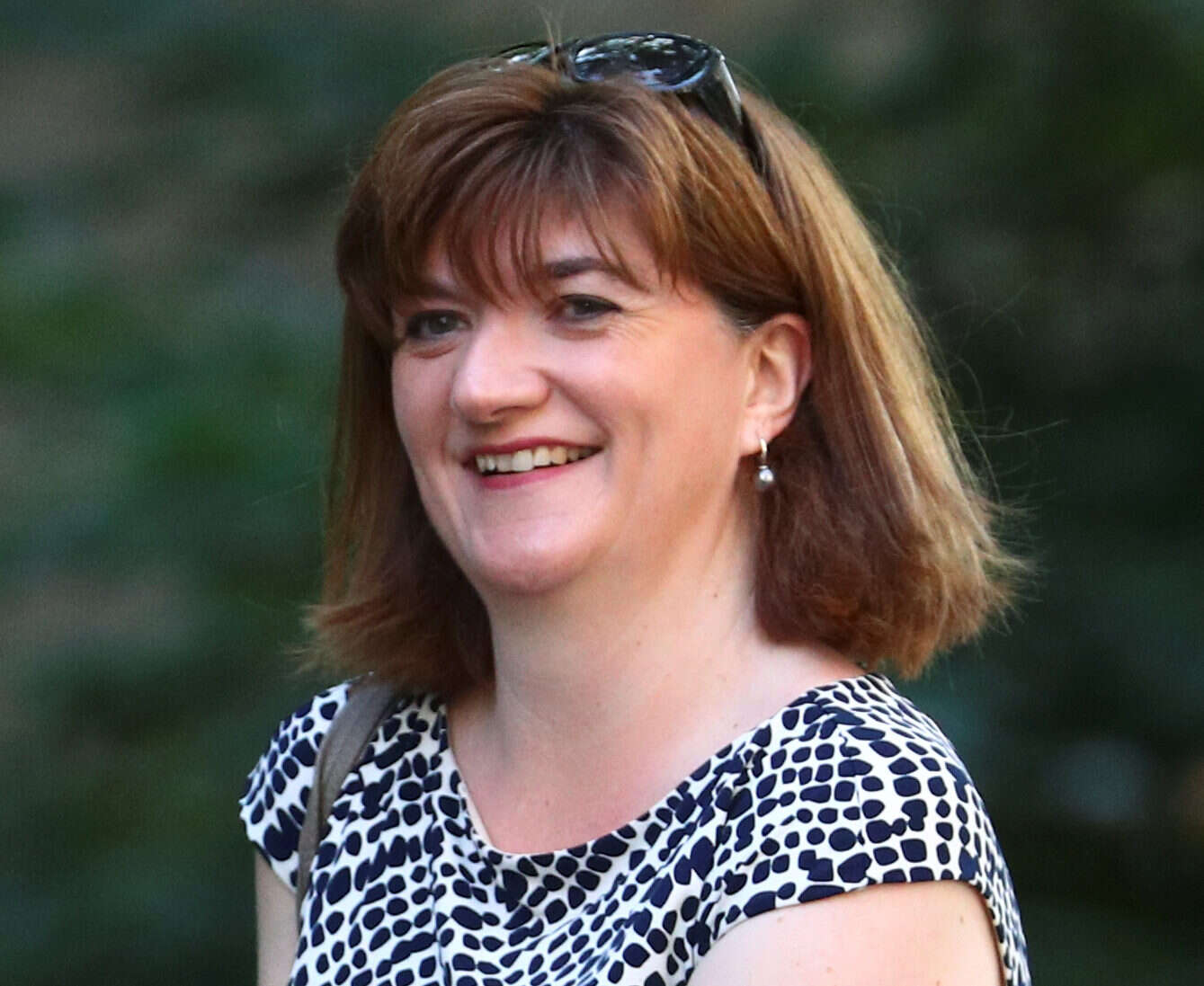
Newly appointed Culture Secretary Nicky Morgan has rarely spoken on issues facing the media in the past, although she once came out in favour of anonymity for suspects before charge.
The proposal has returned to the news in the past year after Sir Cliff Richard won his High Court privacy case against the BBC for revealing he was under investigation by police for a historical sexual assault.
Sir Cliff was never arrested or charged and always denied the allegations.
Boris Johnson brought former Education Secretary Morgan (pictured) back into the Cabinet in a wide reshuffle yesterday, hours after he entered Number 10 as the UK’s new Prime Minister.
She replaced Jeremy Wright MP, who was in the role for only a year after replacing Matt Hancock following his promotion to Health Secretary.
Morgan, MP for Loughborough, said it was an “enormous privilege to take on this fabulous role” at the DCMS and was “looking forward to working with a great team on so many important issues”.
The News Media Association, which represents local, regional and national news publications, said today it is seeking a meeting with Morgan.
Morgan has spoken in favour of the Anonymity (Arrested Persons) Bill when it was proposed – and later withdrawn – by fellow Conservative MP Anna Souby in 2011.
Liberal Democrat home affairs spokesperson Lord Paddick brought the proposed legislation back with a Private Members’ Bill in 2017. A second reading in the House of Lords took place in March.
The bill, which the Government has so far refused to back, would make it illegal for anyone to publicly identify someone arrested by police.
Speaking in February 2011, Morgan said Soubry was “absolutely right to ask for a period of anonymity earlier in the charging process”.
“My local newspaper, the Loughborough Echo, has started a new column of reports from the local magistrates’ court about those brought up and charged with offences,” she said.
“That is an old-fashioned style of reporting, but it is good to read about those who have been charged with committing an offence.
“However, that is the right time for the public to become aware of the fact that people have committed offences.”
She added that the issue affects “not only the individual, but other people such as their family – particularly their children – and work colleagues”.
Later, referring particularly to young people, Morgan said: “There was a case a few years ago of a young man who was accused of rape.
“During freshers’ week at university, an unfortunate incident occurred with a young lady, and it was unclear whether consent had been given.
“The charge was not proven, but – to revert to the point about young people – the young man’s life was ruined because he had been named. He was terrified about his future – his employment prospects, the misery of the next few years of university and so on.
“The bill may particularly benefit young people against whom charges are not proven.”
Law graduate Morgan was Education Secretary and Minister for Women and Equalities for two years from July 2014 and previously served as an assistant whip in the coalition government and both an economic and a financial secretary to the Treasury.
Johnson also appointed Dominic Raab as Foreign Secretary, putting the former Brexit Secretary in charge of the media freedom campaign spearheaded by his predecessor Jeremy Hunt.
In 2012 Raab wrote a Telegraph op-ed opposing state regulation of the press following the Leveson Inquiry, saying that in other countries “regulating journalists has inevitably stifled media freedoms”.
Picture: Reuters/Hannah McKay
Email pged@pressgazette.co.uk to point out mistakes, provide story tips or send in a letter for publication on our "Letters Page" blog
